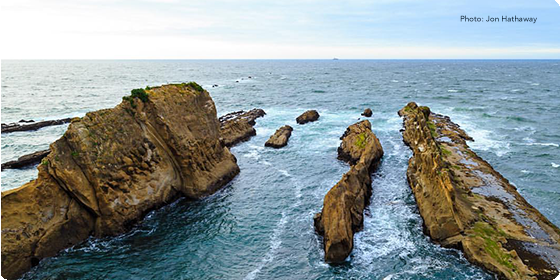
Earlier this year, the National Oceanic and Atmospheric Administration (NOAA) rejected a federal agency’s petition to overturn a state coastal management program consistency objection. The objection in question was to the Jordan Cove LNG project (Project). This proposal called for the construction of a Liquified Natural Gas (LNG) terminal and 229-mile natural gas pipeline. The LNG terminal would have been located in Coos Bay, Oregon, with the pipeline extending through other counties in Oregon and connecting to existing pipelines that serve the Rocky Mountain and Western Canadian region. While there have been several pipeline construction controversies the past few years, this was the first time in several years that a pipeline project was rejected because of a state’s consistency objection. Under the Coastal Zone Management Act (CZMA), states have the authority to reject a federal project that does not align with their coastal zone management objectives, and Oregon invoked this option for the Project.
The proposed Project began in 2017, when Jordan Cove Energy Project, L.P. and Pacific Connector Gas Pipeline, L.P. (collectively, Appellants) submitted plans to the Federal Energy Regulatory Commission (FERC) to begin the required environmental review process. FERC conducted the scoping and environmental review analysis, which included a review of endangered species, a production of a Final Environmental Impact Statement, Clean Water Act permits, and other environmental review procedures. This also included filing a certification for consistency review with the Oregon Department of Land Conservation and Development (ODLCD). Ultimately, ODLCD rejected the consistency certification because there was “no reasonable assurance” that the Project would be consistent with Oregon coastal management.
The consistency certification is a requirement stemming from the CZMA, which creates a framework for managing land and water resources along the United States’ coasts. Under the CZMA, both the federal government and state governments play a role in managing, protecting, and regulating the development of projects and activities within coastal zones. The act provides states with the authority to develop coastal management plans (CMPs) that establish standards for project planning and implementation. These CMPs are submitted for federal review and approval. Another important mechanism of the CZMA is Section 307 – otherwise known as the “federal consistency” provision. Under Section 307, a state coastal management agency may review federal actions that have a reasonably foreseeable effect on any land, water, or natural resource use of that state’s coastal zone. States develop a list of federal activities that will be subject to consistency review. A state may object to the consistency certification submitted by a federal permit applicant, which stops the agency from proceeding with the project. If a state timely objects to a consistency certification, the permit applicant may appeal the consistency finding to NOAA. In the event of an appeal, NOAA reviews the project, and may override the state decision—thus allowing the project to proceed—only if the activity is consistent with the objectives or purposes of the CZMA or the project is necessary for national security.
Oregon includes FERC permits on its list of actions requiring consistency review. In April 2019, the Appellants submitted consistency certification for the Project but, after review, ODLCD ultimately denied certification. Appellants appealed to NOAA and asked for the consistency certification to be overruled.
In this case, NOAA rejected the appeal and ruled in favor of Oregon. The decision noted that the record for review lacked information pertaining to habitat analysis for over 30 listed endangered species that might inhabit areas located near the export terminal and pipeline. Additionally, NOAA also found that the record lacked information about the Project’s effects on cultural and historic resources, such as the consultation procedure with seven federally recognized Indian Tribes, as well as impacts to the Traditional Cultural Property Historic District. Without the approved consistency certification, the Project cannot proceed.
In addition to the decision’s immediate impact on the Jordan Cove LNG project, speculation is stirring as to whether Oregon’s successful objection will inspire other states to exercise consistency objections over federal projects. Consistency objections are relatively uncommon, however, and may remain so moving forward.












